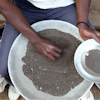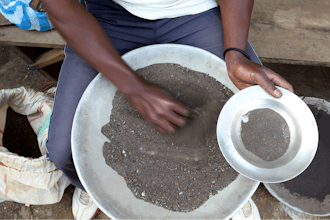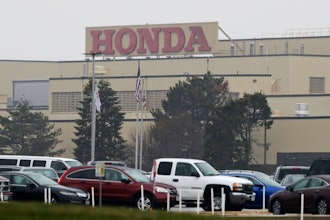BEIJING (AP) -- China's Cabinet vowed a complete overhaul of the scandal-ridden dairy industry Monday, pledging to inspect every link from the farm to the dinner table to try to restore public trust in Chinese-made food products.
In its strongest action yet, China's highest level of government called the industry "chaotic" and acknowledged there was a lack of oversight.
At Monday's meeting of the State Council, or Cabinet, the government said it would punish companies and officials involved in the contamination of milk products that has been blamed in the deaths of four babies and for sickening more than 54,000 children.
The contamination scandal had forced a halt in production of China's iconic White Rabbit candy, but the state-run China Daily newspaper reported Tuesday that output had resumed.
The popular vanilla-flavored sweets -- sold in more than 50 countries, including the United States -- were pulled out of stores around the world last month and production stopped as its maker said the candy may have been contaminated.
Guan Sheng Yuan Co. said White Rabbit candy production has started again because the company is now using a safe supply of powdered milk, but it did not say when sales would resume.
The scandal revealed "that China's dairy production and circulation has been chaotic and supervision has been gravely absent," said a notice about the meeting on the government's Web site. Unscrupulous "elements" and companies had also put profit above people's lives, it said.
Police detained six more people suspected of tampering with milk in northern China, a spokeswoman said, bringing to 32 the number of people arrested in the scandal.
Monday's meeting, chaired by Premier Wen Jiabao, was the latest attempt by the Chinese government to show it is tackling the widespread contamination of milk and other dairy products with melamine, an industrial chemical used in making plastics and fertilizers. It was the second time the State Council, China's highest government body, has met since the crisis broke last month.
China has struggled to contain public dismay and growing international concern, castigating local officials for negligence while promising to raise product safety standards. But the scandal has continued to lead to recalls and the blocking of Chinese imports in numerous countries.
The head of China's quality watchdog said the country was stepping up checks on its exports to ensure they conformed to the food safety standards of recipient countries, the official Xinhua News Agency reported.
"Food safety concerns not only the health of the public, but also the life of business," Xinhua quoted Wang Yong, the director of the General Administration of Quality Supervision, Inspection and Quarantine, the agency responsible for ensuring that China's food supply chain is safe.
Wang replaced Li Changjiang, who resigned last month in the wake of the scandal. Wang vowed to make "a substantial change in the production and distribution of dairy products."
Part of the agency's cleanup effort was the deployment in mid-September of more than 5,000 inspectors to check dairy factories. Wang said the inspections covered all dairy producers across the country and would monitor the entire production process around the clock.
Chinese authorities believe suppliers trying to cut costs diluted milk, then added melamine to fool quality control tests and make the product appear rich in protein. Melamine, like protein, is high in nitrogen. However, the chemical can cause kidney stones as the body tries to eliminate it and, in extreme cases, can lead to life-threatening kidney failure.
Wang's watchdog agency said Sunday that tests showed that no melamine has been found in milk powder produced after Sept. 14, three days after a major dairy at the heart of the scandal recalled 700 tons of baby formula.
But the effects of the contamination continue to be felt, with 382 more children receiving treatment in Beijing's hospitals for kidney stones last week, according to the Beijing News, a state-run newspaper.
More than 3,000 children have been treated for kidney stones in Beijing since the scandal broke in early September, the paper said. Calls to the Health Ministry rang unanswered Monday.
The six suspects arrested Monday were being questioned in Hohhot, in northern China's Inner Mongolia region, a city spokeswoman said.
The arrests followed an investigation into two major Chinese milk companies based in Inner Mongolia, Xinhua said.
Recalls of Chinese-made products continued, with Iran's Health Ministry saying Sunday it would ban the import of all Chinese dairy products.
Japan ordered increased inspections of animal feed and pet food imported from China to make sure they don't contain melamine, Agriculture Ministry official Satoshi Motomura said Monday.
The order comes after Beijing said several Chinese feed makers allegedly mixed melamine into their products used for dairy cows.






















